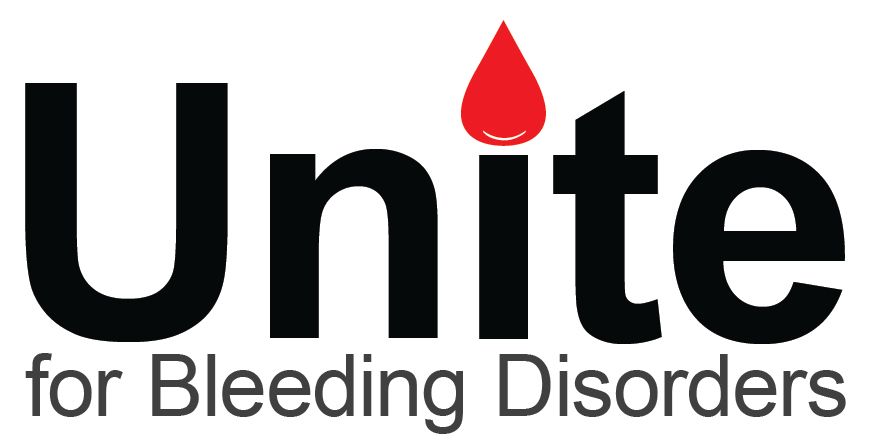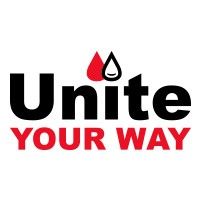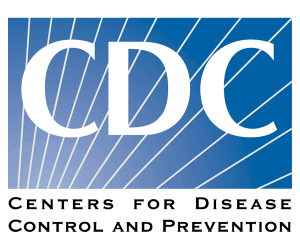Important Updates
Please use this page to stay updated with the impacts and programming adjustments due to COVID-19.
March 5, 2021 - 5PM MST - COVID-19 Vaccine Webinar
In partnership with West Virginia, NHF and Central Ohio, NHF, we hosting a COVID-19 Vaccine Webinar. During this live webinar, Dr. Samuel Merrill, Medical Director of the West Virginia University Hemophilia Treatment Center will provide the latest information and resources about the COVID-19 Vaccine and the questions and concerns around vaccination and bleeding disorders. We will also be joined by Krista Capehart, Director of Professional and Regulatory Affairs for the West Virginia Board of Pharmacy to discuss the vaccine implementation and distribution plan nationally and in West Virginia.
COVID-19 Vaccines and Bleeding Disorders: Frequently Asked Questions (FAQs)
NHF recognizes that individuals with bleeding disorders may have questions and concerns relevant to the new COVID-19 vaccines, including any implications specific to their conditions. The following FAQs are therefore meant to address some of the most common questions. Please note that these answers were created for broad purposes and that affected individuals should engage closely with their healthcare provider to discuss the possibilities of vaccination, including potential contraindications (if any), and specific questions related to safety and efficacy. Given the nature of this virus, rapid developments in vaccines, and the upcoming transition in our federal government, this continues to be a very fluid situation.
Two mRNA COVID-19 vaccines – from Pfizer-BioNTech and Moderna – have already been approved and are currently being administered to people in the US and internationally. There are several other vaccines that are in development and will be considered for “Emergency Use Authorization” (EUA) from the U.S. Food and Drug Administration (FDA), including two viral vector vaccines – developed by Oxford-Astrazeneca and Johnson & Johnson. These additional vaccines are currently in large, phase III clinical trials and yielding promising results thus far. NHF will keep the bleeding disorders community updated as new information becomes available.
Before receiving a COVID-19 vaccine, you may be asked questions about your bleeding disorder. Below are some of the questions you may be asked, and an explanation as to why the people administering the vaccine might ask them. These questions should not deter anyone from receiving a vaccine. If you have a question about your specific situation, be sure to discuss it with your hematologist.
SCREENING QUESTIONS
Do you have a bleeding disorder or have any issues with bleeding?
A bleeding disorder neither increases the risk for getting coronavirus infection nor having a serious infection, being hospitalized or dying if you are infected.
Likewise, having a bleeding disorder is not a reason to avoid getting the vaccine. Following precautions such as infusing with a factor replacement product prior to or right after the vaccination and applying pressure for 10 minutes after the vaccination should be considered. Contact your hematologist or healthcare professional to plan to safely receive the vaccine.
Patients receiving emicizumab may be vaccinated by intra-muscular injection at any time without receiving an additional dose of FVIII. Patients with von Willebrand disease or a rare bleeding disorders should consult with their hematologist regarding special precautions prior to receiving the vaccination. All rare bleeding disorder patients (including those with thrombocytopenia and/or platelet function disorders) should be vaccinated. Patients on anticoagulants should have prothrombin time testing performed within 72 hours prior to injection to determine international normalized ratio (INR); if results are stable and within the therapeutic range, they can be vaccinated intramuscularly.
Have you or are you currently receiving any monoclonal antibody treatments?
You may be asked this question before you receive the vaccine. Receiving emicizumab is not a reason not to receive a vaccine to prevent COVID-19 infection. Emicizumab is a monoclonal antibody that is used to prevent bleeding in people with hemophilia A. Other monoclonal antibodies have been and are being developed as treatments for COVID-19 infections. You can and should receive a vaccine even if you are taking emicizumab to prevent bleeding.
Are you taking any medications with one of the following ingredients……one of those ingredients being a PEG?
Polyethylene glycol (PEG) is a stabilizer that is used in may medications including plasma derived and recombinant factor products. Factor products that use PEG to extend the half-life of the factor product or any factor products are not a reason to not take a vaccine unless you have had a reaction to PEG. If you have a question about this please talk with your hematologist or healthcare professional.
FREQUENTLY ASKED QUESTIONS
What is an “Emergency Use Authorization” (EUA)?
An Emergency Use Authorization (EUA) is a mechanism to facilitate the availability and use of medical countermeasures, including vaccines, during public health emergencies, such as the current COVID-19 pandemic. Under an EUA, FDA may allow the use of unapproved medical products in an emergency to diagnose, treat, or prevent serious or life-threatening diseases or conditions such as infection with the virus that causes COVID-19 disease when certain statutory criteria have been met, including that there are no adequate, approved, and available alternatives.
These vaccines were developed very fast. Are they safe?
It is true that the Pfizer/BioNTech and Moderna vaccines have been developed very quickly. But the technology behind the vaccines is not new. They both are what are called mRNA vaccines, which function very differently than the types of vaccines used in the past. mRNA vaccines, rather than using a weak or ineffective sample of the virus to trigger antibodies – like in a flu shot – mRNA vaccines instruct your cells to create a harmless protein (called “spike” protein) that your body recognizes as foreign, creating an immune system response. Scientific papers describing this mRNA technology, discovered by Hungarian scientist Katalin Karikó (who oversees mRNA work for BioNTech) were first published in 2005.
Is it safe for a person with a bleeding disorder to receive the COVID vaccine?
If you have a bleeding disorder, there are no contraindications to being vaccinated with either vaccine now available via EUA status for intramuscular administration. It should be noted that, immune tolerance therapy, treatment for hepatitis C, and HIV and other conditions including the use of immunosuppressive agents do not preclude a person from receiving either available vaccines. For patients in a clinical study, vaccination should be reported to the study investigators.
Would I be in a priority group to receive the vaccine with a bleeding disorder?
Because people with bleeding disorders are not at a greater risk of contracting COVID-19 or developing a severe form of the disease, they are not considered a priority group. General selection rules will apply for those with a bleeding disorder. Bleeding disorder patients in the risk groups identified by age, state of health, health care or other essential worker will be vaccinated as a priority like others in the general population with the same risks. Priority groups will vary by state.
Is there a particular type of vaccine I should choose?
Currently there is no reason to choose a particular type of vaccine. If you are considering enrolling in a gene therapy clinical trial, you should avoid any vaccines that use a modified adeno-associated virus (AAV) since these viruses are used in gene therapy. No vaccinations currently approved or in development are using AAV viruses. However, vaccines that are using a different virus, adenovirus, are being tested and are unrelated to AAV therefore would not be a problem with enrolling in a gene therapy clinical trial in the future.
Will I have a bleed if I receive the vaccination?
The vaccination is administered intra-muscularly but the smallest gauge needle needs should be used (25-27 gauge), if possible. Some vaccines must be administered using the accompanying needle–syringe combination, and so the use of an alternative needle may not be possible or desirable.
It would be preferable for you to infuse with a factor replacement product prior to or right after the vaccination and applying pressure for 10 minutes after the vaccination. Patients receiving emicizumab may be vaccinated by intra-muscular injection at any time without receiving an additional dose of FVIII. Patients with von Willebrand disease or a rare bleeding disorder should consult with their hematologist regarding special precautions prior to receiving the vaccination. All rare bleeding disorder patients (including those with thrombocytopenia and/or platelet function disorders) should be vaccinated. Patients on anticoagulants should have prothrombin time testing performed within 72 hours prior to injection to determine international normalized ratio (INR); if results are stable and within the therapeutic range, they can be vaccinated intramuscularly.
Following the vaccination, the area should be monitored for hematoma formation immediately for 10 minutes to reduce bleeding and swelling and by self-inspection 2-4 hours later at home to ensure that there is no delayed hematoma. Discomfort at the injection site is to be expected. Discomfort in the arm felt for 1-2 days after injection should not be alarming unless it worsens and is accompanied by swelling.
Any adverse events should be reported to the physician and any allergic reactions need to be reported immediately to your physician or you need to go to the emergency room. To read more about vaccinations in general see NHF’s Medical and Scientific Advisory Council’s recommendation, Recommendations on Administration of Vaccines to Individuals with Bleeding Disorders.
Should I take the vaccination if I am pregnant or breastfeeding?
Currently, there is limited data on the safety of COVID-19 vaccines for women who are pregnant or breastfeeding, although studies are planned. The Centers for Disease Control and Prevention (CDC) and the FDA have safety monitoring systems in place to capture information about vaccination during pregnancy and will closely monitor reports. Individuals who are pregnant and considering vaccination for COVID-19 are encouraged to speak with their clinicians. According to the CDC, key considerations that should inform these conversations include likely exposure to the virus that causes COVID-19; risks of COVID-19 to the pregnant patients and their fetus; and current knowledge about available vaccines including efficacy, known side effects, and the lack of available data in this population.
Below are some helpful resources:
- CDC Pre-vaccine screening questionaire
- How COVID-19 Vaccines Work (CDC)
- COVID-19: Mitigation, Treatment, and Vaccines (NHF Webinar)
- MASAC Document 221 – Recommendations on Administration of Vaccines to Individuals with Bleeding Disorders.
- Fact Sheet for Recipients and Caregivers – EUA of the Pfizer-BioNTech COVID-19 Vaccine to prevent Coronavirus Disease 2019 in Individuals 16 Years of Age and Older
- Fact Sheet for Recipients and Caregivers – EUA of the Moderna COVID-19 Vaccine to Prevent Coronavirus Disease 2019 in individuals 18 Years of Age and Older
- COVID-19 Vaccination Considerations for People Who Are Pregnant (CDC)
Last revised: February 3, 2021
March 25 - Community Email
During these unprecedented times, we wish you, your family and friends, good health and well-wishes. We have a few updates, we wanted to share with you at this time.
- Earlier today, Governor Little issued a state-wide 'stay-at-home' order. This order is effective immediately and will be in place for at least 21 days. More information about this order will be available on the official COVID-19 webpage for Idaho.
- We have provided some useful resources and some fun activities that you can do at home. See below for this information.
- The National Hemophilia Foundation has and will continue to provide regular updates and webinars for all members of the community. If you missed last Friday's webinar, please watch it now. It has great information from our CEO, Dr. Valentino regarding how COVID-19 affects the bleeding disorder community.
Townhall, this Friday, 3/27 at 1 pm
We will host our first virtual meet-up this Friday, 3/27 at 1 pm. Please join Michael Krieger, Executive Director, for community updates and check-in. We will use the platform zoom for the call. Any questions, please contact us!
Join Zoom Meeting: https://zoom.us/j/999406657
Meeting ID: 999 406 657
One tap mobile: +16699006833,,999406657# US (San Jose)
Dial by your location: 1.669.900.6833 US (San Jose)
During these unprecedented times, the organization is working to be nimble and make adjustments to our programming methodology. Please take this quick survey so we can make adjustments based on your responses.
>> Take the Survey Now <<
March 16 - Community Email
As we learn, receive updates, and navigate the spread of COVID-19 in our community and around the country and world, it is possible to get overwhelmed by the news. NHF Idaho continues to focus on supporting our community members. In the news we continue to hear the plea for “Social Distancing”. I believe that this practice imperative, but do not wish for it to turn into social isolation. We are a strong knit community and my hope is during times like this our community-focused foundation can really shine.
NHF Idaho is committed to the well-being of our members and providing avenues for community connection. In consultation with communication and guidance from the National Hemophilia Foundation, Center for Disease Control, and Idaho Department of Health and Wellness, we have adjusted the schedule for programming for the next 8 weeks, through May 9, 2020. The events impacted are as follows:
- April 17 – World Hemophilia Day: We are working with our sponsor to re-imagine how this event will be presented to the community. More information will be sent out once a decision has been made. We will not have a localized educational dinner, as once planned.
- April 18 – Bloody Mary Mix-Off: This event will be postponed to a date later in the 2020 year. The chapter will monitor this public health concern for the next few weeks to determine if this event will happen in Summer or Fall 2020. If you have already purchased your tickets, be on the lookout for separate email communication. All purchased tickets will be honored for the new date.
- May 2 – Canvas & Cupcakes: This event is postponed indefinitely.
- All Board and Committee meetings will be transitioned to a teleconference platform.
As of now, our events after May 9 are planned as scheduled. We will update you if new information is presented to us that may impact those events.
Looking for ways to support? We ask that you stay connected with each other (social media, email, call, text) and get involved with any modified programming that we provide for the community.
Through this all, NHF Idaho continues to focus on supporting our community members; we are here to be a resource. If you need any assistance, please feel free to reach out to us. In an effort to streamline our support we ask that you email idaho@hemophilia.org so Marlyn or I do not miss an email.
Here are some local and national COVID-19 resources that you may find useful:
Idaho’s Official Resource for COVID-19
Idaho’s Interim Guidance for Mass Gatherings and Public Events
Statement from NHF’s CEO, Dr. Len Valentino
MASAC Letter to the Community









